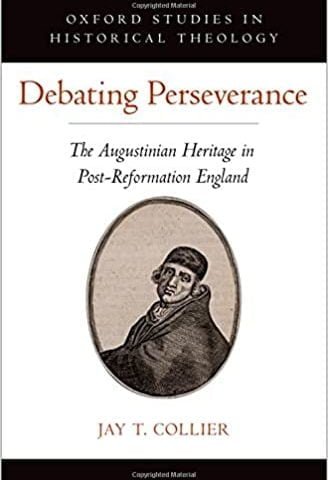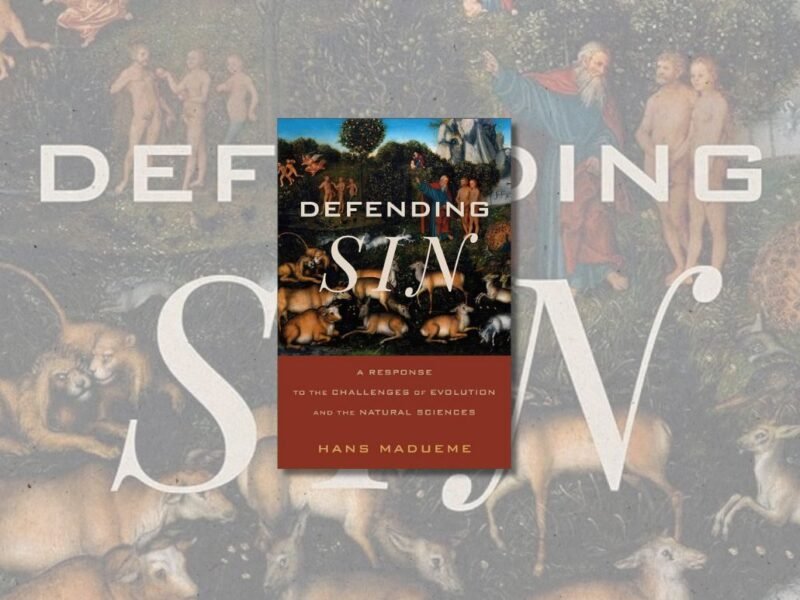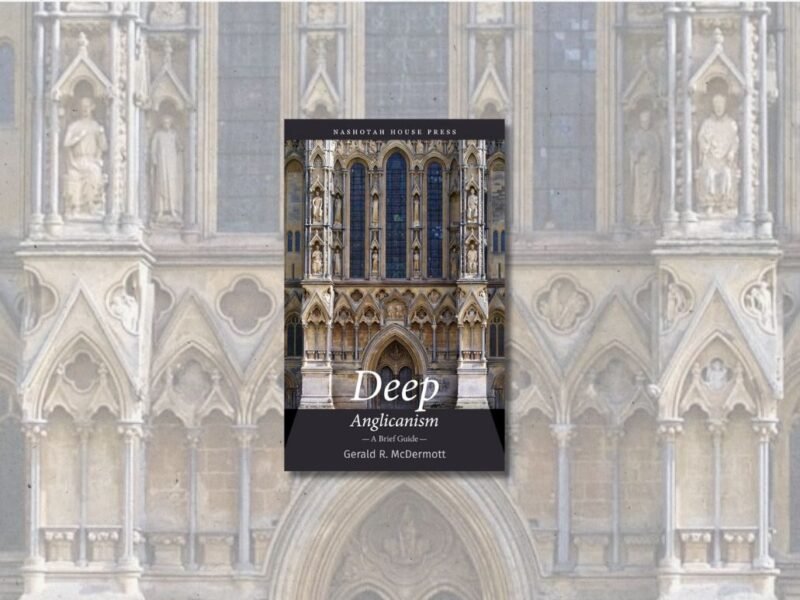Debating Perseverance: The Augustinian Heritage in Post-Reformation England. By Jay T. Collier. Oxford Studies in Historical Theology. New York: Oxford University Press, 2018. 240 pp. $105 (cloth).
According to Jay T. Collier, there are two competing ways of understanding the Church of England’s identity in the late sixteenth and early seventeenth centuries. Some scholars—such as J. E. Neale, H. C. Porter, George W. Bernard, Kevin Sharpe, and Peter White—think “the Church of England created a distinct ‘Anglican’ Protestantism that placed it between Rome and Geneva” (5). Under this theory the early Church of England was a catholic via media or middle way. Others—e.g., Dewey D. Wallace Jr., Nicholas Tyacke, and Peter Lake—believe “there was an early English consensus of Calvinistic thought that was eventually abandoned in later conformist thought” in favor of Arminianism (7). According to this theory the historic Church of England was squarely Reformed in the same vein as the continental Reformed churches.
Collier argues that neither of these understandings is adequate. Rather, in the historic Church of England “ancient catholicity and the Reformed consensus simultaneously served as sources of identity in the sixteenth and seventeenth centuries” (9).
To illustrate this point, Collier examines several occasions in the early Church of England where the doctrine of the perseverance of the saints was debated. He focuses on this doctrine because, he contends, it is the only one out of the classic five points of Calvinism that “seems distinctively Reformed when taken on its own,” for “like predestination, the Dortian doctrines of human depravity, effectual grace, and the restricted efficacy of Christ’s satisfaction could be found within non-Reformed communions” (10). As such, the doctrine of perseverance serves as a useful indicator of “how church leaders managed both sources of influence [i.e., ancient catholicity and the Reformed consensus] as they sought to implement policies and procedures within the Church of England” (9).
The occasions Collier discusses include, among others, the drawing up of the 1595 Lambeth Articles, the Synod of Dort and the role the British delegation played there, and the controversy surrounding certain works by alleged Arminian Richard Montagu. In every case, Collier argues, most of those who opposed perseverance of the saints cannot rightly be described as Arminian—contra the “Calvinist consensus” scholars—nor did they regard themselves as such. Rather, they identified with a “traditional, broad-church approach to being Reformed” (19) that characterized the early Church of England but later became difficult to uphold after “Dort’s more narrow definition of perseverance” (17) became part of the international consensus on what it meant to be Reformed. Likewise, those in the Church of England who supported perseverance of the saints nonetheless recognized that their opponents held to a “previously permitted [before Dort] minority opinion within the Reformed tradition” (17).
Collier also shows that in each case most of the principal actors on both sides of the debate appealed to Augustine in support of their position. That the opponents of perseverance would cite a catholic source such as Augustine in their defense is perhaps unsurprising, but Collier makes a point of demonstrating that the doctrine’s supporters did so as well, which undercuts the claim of contemporary “Church of England as via media” proponents that “Puritans…devalued the early church” (8).
In light of this select survey of debates over perseverance of the saints, Collier observes that applying labels such as “Calvinist” and “Arminian” to historical figures—especially when the debate participants themselves used such terms in a polemical context—“can distort the perception of things as much as they can clarify it” (200). Moreover, “Simplistic categories left unqualified lead to simplistic understandings of history, often oblivious to the rich contours of the theological landscape” (201). Collier thus concludes it is a false dichotomy to “describe the Church of England during the late sixteenth and early seventeenth centuries as either comprising a Calvinist consensus or partaking of an Anglican spirit steeped in an ancient catholicity” (202). We should instead recognize that “both the Reformed churches and the early church [were] important sources of identity for the Church of England” (203).
Potential readers should understand from the outset that this book is not a treatment of the doctrine of perseverance per se—Collier does not argue either for or against the perseverance of the saints, nor does he attempt to determine which reading of Augustine, pro or contra perseverance, is the “more correct” one (202). Rather, Collier’s purpose is to draw on late sixteenth- and early seventeenth-century Anglican debates on perseverance as a case in point to demonstrate that contemporary scholars do not adequately describe the early Church of England with either the “via media” model or the “Calvinist consensus” model. Insofar as we derive our own conception of Anglican identity from the historic Church of England’s self-understanding, it therefore behooves us to recognize that, as Collier argues, in its beginnings the Church of England strove to “[maintain] a version of Reformed and ancient catholicity” (204).
That said, the book is sure to be of interest for those who wish to learn more about classical Anglican thought on this point of soteriology. Moreover, it will be relevant to any Christians today, Anglican or otherwise, who wish to affirm—along with many of the historical figures Collier discusses—that to be Reformed is not necessarily to be Calvinist.
Sadly, the steep price tag (even for the E-book version) utterly precludes the prospect of this book attracting casual readers. It can only be hoped that a more affordable paperback edition will be forthcoming in the not-too-distant future, as Debating Perseverance is an insightful, informative study not only of the doctrine of perseverance in the early Church of England, but of the sources of historic Anglican identity.
James D. K. Clark
Yale Divinity School







'Debating Perseverance: A Book Review' has 1 comment
March 27, 2020 @ 7:59 am Ryan Scott
I just finished “debating perseverance”. It’s brilliant and very helpful for those of us striving for a broad reformed anglicanism.